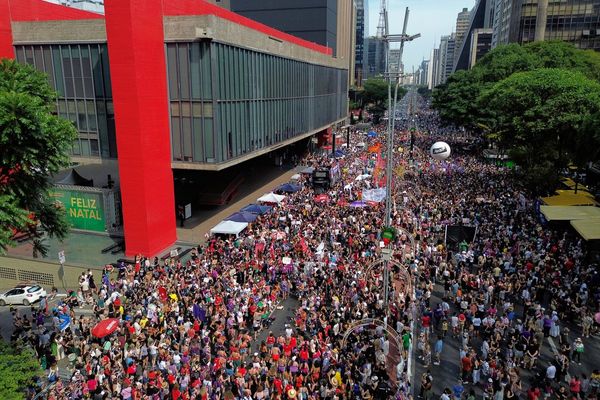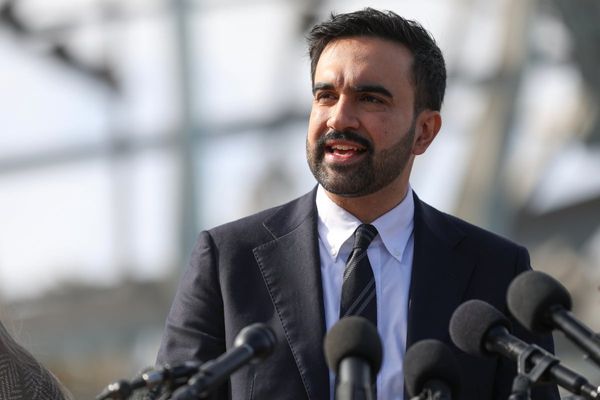Protesters clashed with police at a demonstration in support of Palestine Action as the government confirmed a move to ban the group under anti-terror laws.
The crowd surged towards police when officers tried to detain someone in Trafalgar Square in central London, while onlookers chanted “let them go”.
The protest had initially been planned to take place outside parliament, but the location was changed early on Monday morning after the Metropolitan Police imposed an exclusion zone.
The Met commissioner Sir Mark Rowley said he was “shocked” by the planned protest and described Palestine Action as an “organised extremist criminal group”.
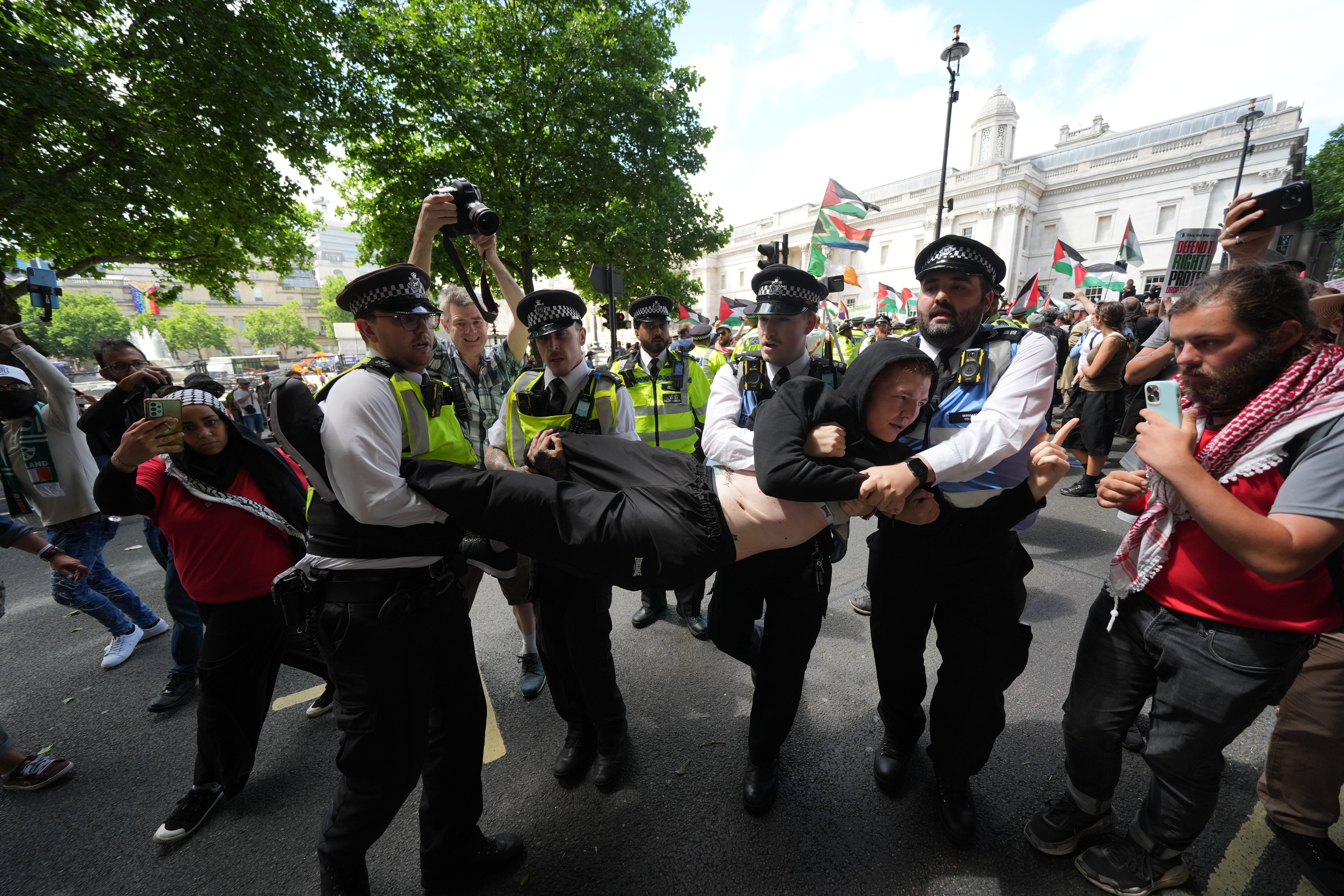
In a post on social media, the Met Police said: “Officers entered the crowd to speak to three people but were surrounded by other protesters, some of whom used force to attempt to free those being detained. Two were arrested for obstruction. A third arrest was made earlier for a racially aggravated public order offence.”
Shortly after the protest began, home secretary Yvette Cooper announced she had decided to proscribe Palestine Action, following the group’s vandalism of two planes at an RAF base.
She said she would lay an order before parliament next week, which, if passed, will make membership and support for the protest group illegal.
Belonging to or expressing support for a proscribed organisation, along with a number of other actions, is a criminal offence carrying a maximum sentence of 14 years in prison.
Ms Cooper said in a written ministerial statement: “The disgraceful attack on Brize Norton in the early hours of the morning on Friday 20 June is the latest in a long history of unacceptable criminal damage committed by Palestine Action.
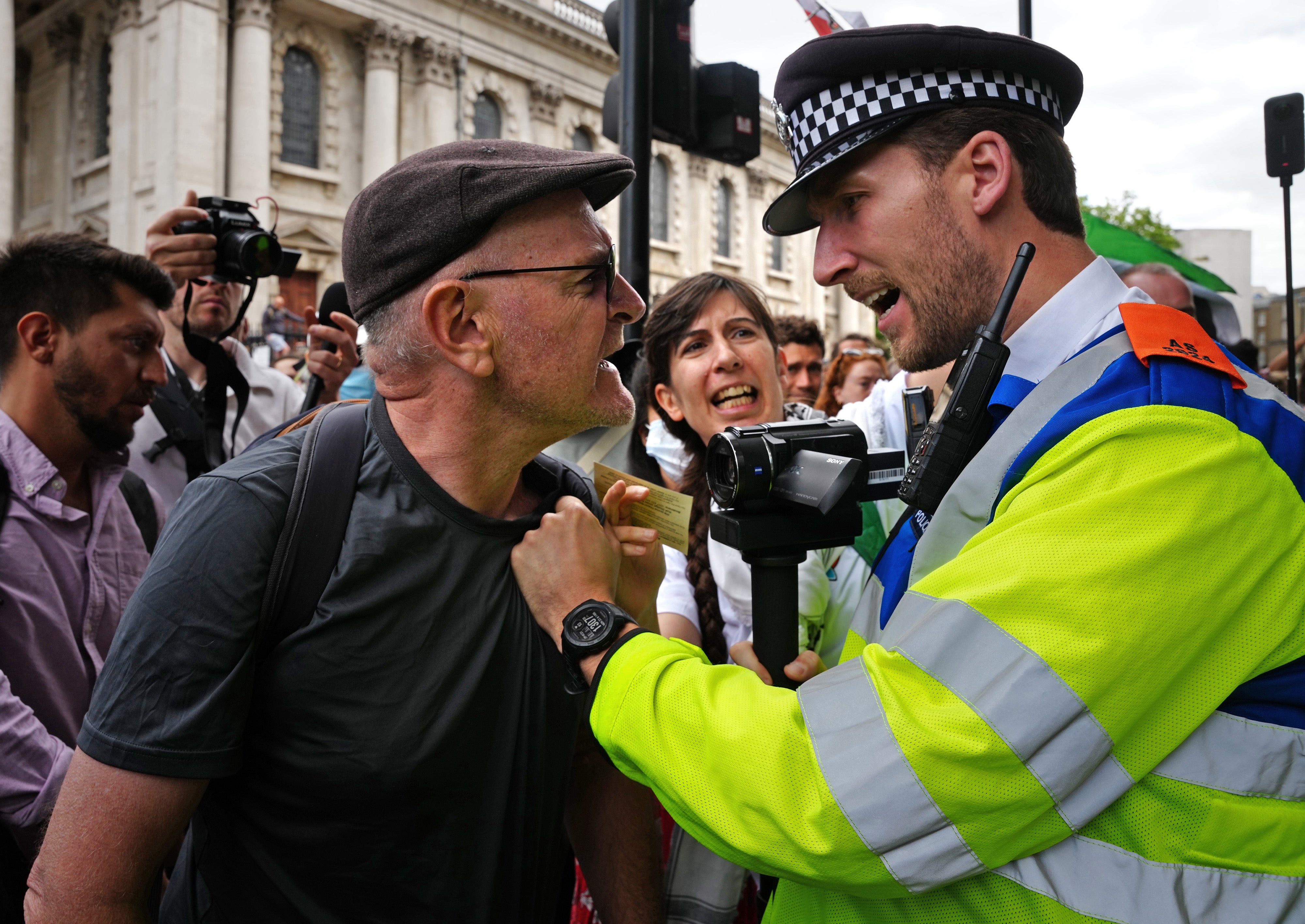
“The UK’s defence enterprise is vital to the nation’s national security and this government will not tolerate those [who] put that security at risk.”
On Sunday, Cabinet minister Jonathan Reynolds said he could not rule out the possibility of a foreign power being behind Palestine Action.
Speaking at the protest, Palestine Action spokesperson Max Geller said there had never been any evidence of such claims.
“I can’t overstate how absurd and disappointing that accusation is,” he said.
“I want to make very clear that there has never been any evidence offered to support such a claim, and if we were allowed to be a legally recognised group, that man would be being sued right now for libel.”
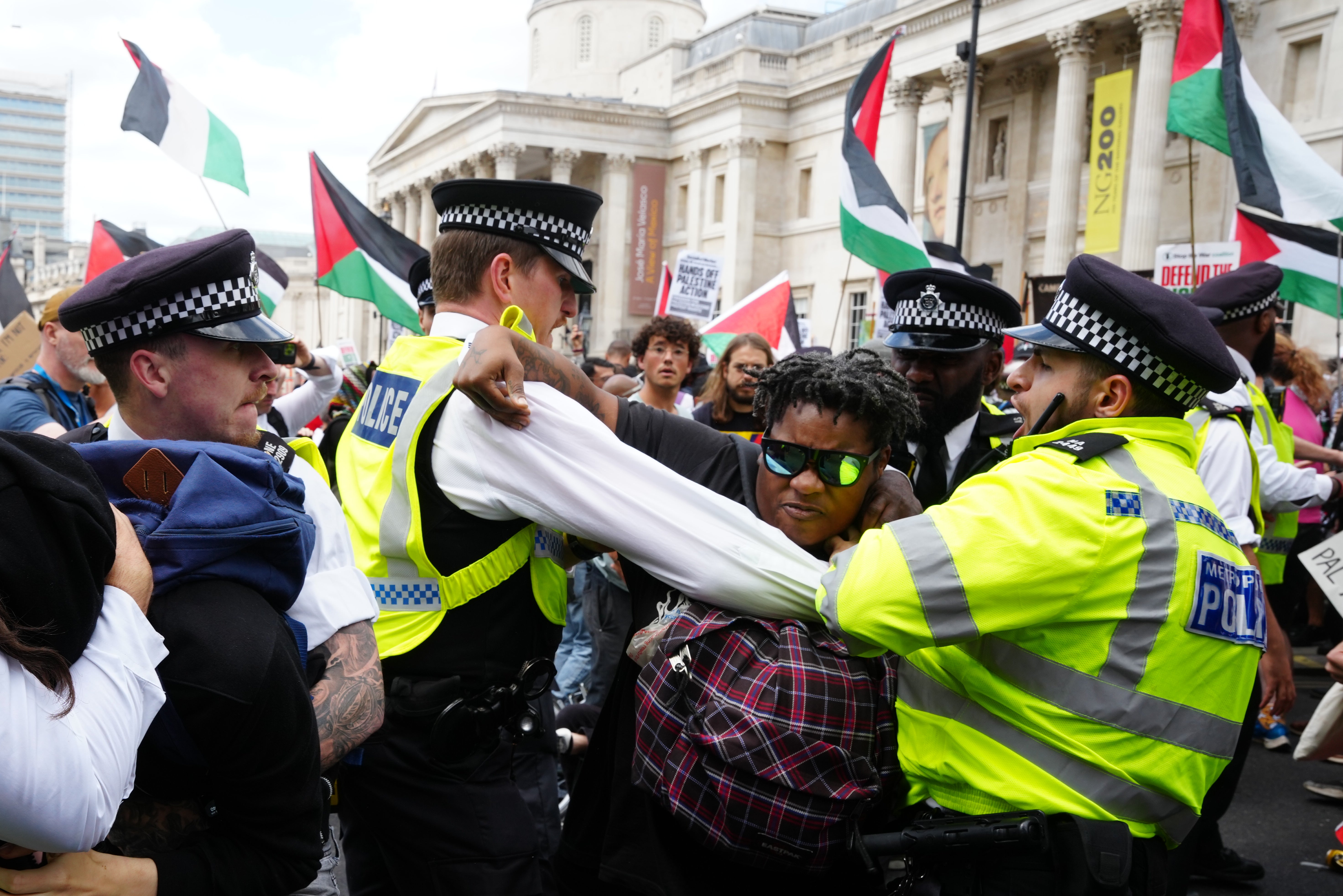
Asked about Sir Mark’s comments, he said: “It’s really troubling that the head of the Met would pre-empt the government and ban us from protesting [at parliament].
“It’s a frustrating turn for democracy in this country.”
The decision comes after the group posted footage online showing two people inside the base at RAF Brize Norton in Oxfordshire.
The clip shows one person riding an electric scooter up to an Airbus Voyager air-to-air refuelling tanker and appearing to spray paint into its jet engine.
Speaking on Sunday, the head of the Met said he was “shocked and frustrated” at the protest, but that until the group is proscribed, the force had “no power in law” to prevent it taking place.
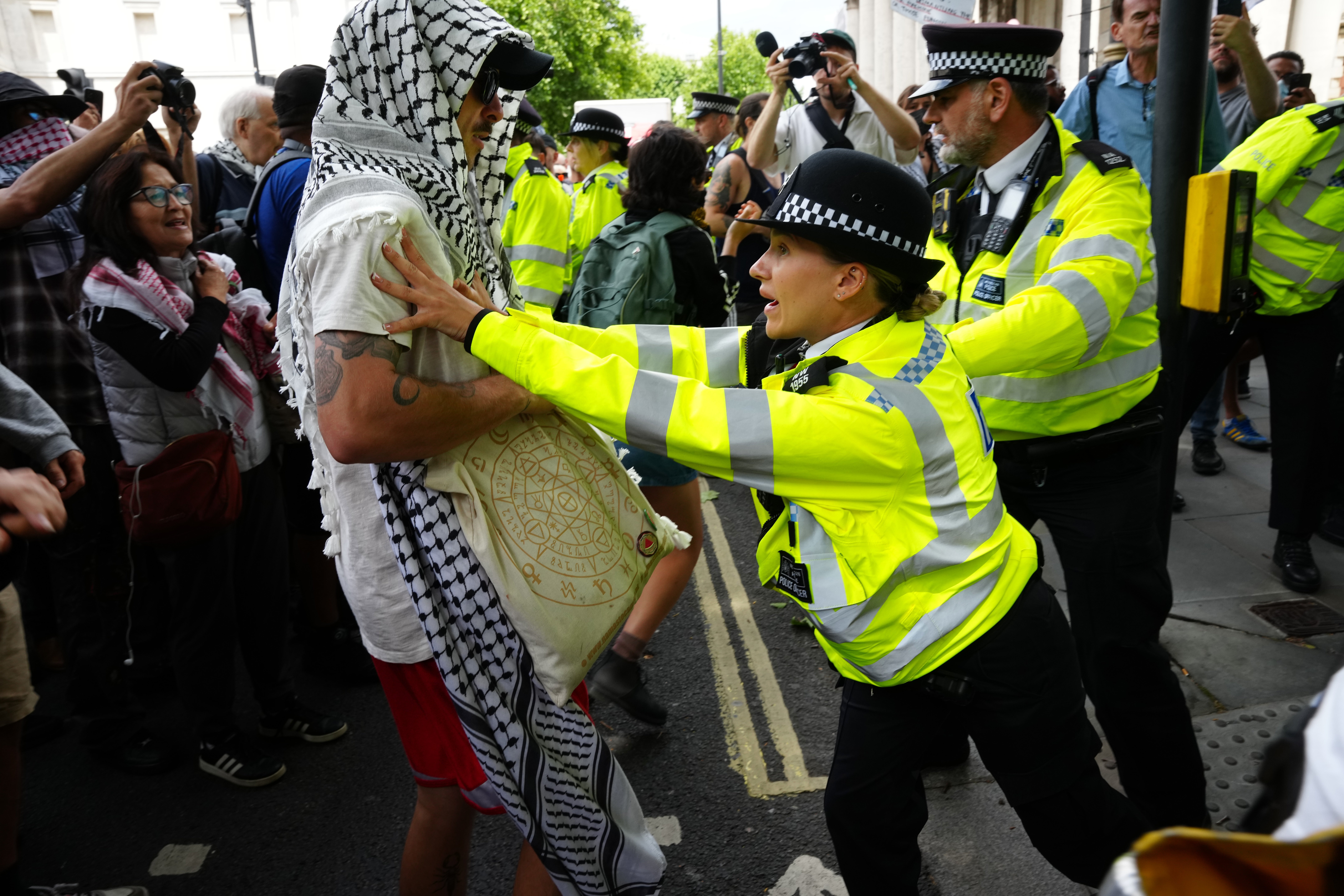
“The right to protest is essential and we will always defend it, but actions in support of such a group go beyond what most would see as legitimate protest,” he added.
“Thousands of people attend protests of a different character every week without clashing with the law or with the police. The criminal charges faced by Palestine Action members, in contrast, represent a form of extremism that I believe the overwhelming majority of the public rejects.”
Some 81 organisations have been proscribed under the 2000 Act, including Islamist terrorist groups such as Hamas and al-Qaeda, far-right groups such as National Action, and Russian private military company the Wagner Group.
Palestine Action has staged a series of demonstrations in recent months, including spraying the London offices of Allianz Insurance with red paint over its alleged links to Israeli defence company Elbit, and vandalising Donald Trump’s Turnberry golf course in South Ayrshire.


